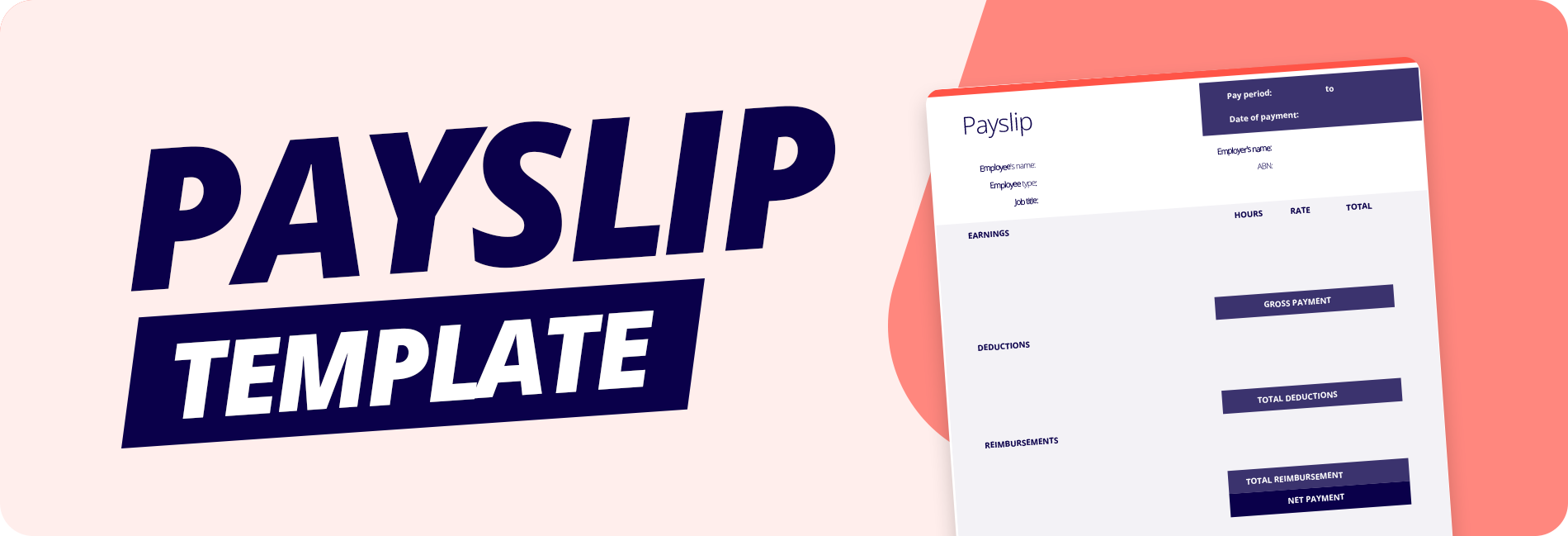TABLE OF CONTENTS
- What are payroll taxes in Victoria?
- Determining your payroll tax obligations
- Payroll tax threshold amount
- Total wage bill
- Registering for payroll tax
- Payroll tax rates
- Annual reconciliations and monthly payments
- Payroll tax payment and organisation through PTX Express
- Contractors and employment agencies
- Grouping provisions
- Exemptions
- Compliance, accurate returns and penalties
Understanding and correctly applying payroll tax in Victoria can be confusing, especially for time-poor business owners. But it’s one of the most important parts of your operations if you want to stay compliant and avoid penalties.
Payroll tax is levied on Australian wages and varies between states and territories, making it even more essential to stay informed about the specific Victorian rules, thresholds, and filing requirements. Here’s everything you need to know about paying Victorian taxable wages so you can focus more time on growing your business.
What are payroll taxes in Victoria?
Payroll tax in Victoria is a state tax on the wages you — as an employer — pay to your employees once a specific threshold has been exceeded. This tax is calculated from the total wages paid to staff, including all bonuses, allowances, and superannuation contributions.
The threshold and tax rates are subject to change and are determined by the Victorian government every financial year, so it’s a good idea to monitor the annual budget for any changes to your payroll tax management.
Determining your payroll tax obligations
To calculate your exact payroll tax obligations, visit the State Revenue Office Victoria page on how to register for payroll tax. It includes detailed information on thresholds, rates, due dates, and reporting requirements.
Beyond allowing you to register for payroll tax online, the website will help you understand when you need to pay payroll tax and how to calculate it accurately. Generally, if your total Victorian taxable wages exceed a certain threshold, you will need to register for payroll tax. If you’re unsure about your obligations, speak to your accountant or financial advisor to ensure you do everything above board.
Payroll tax threshold amount
Payroll tax thresholds can change from year to year. For example, from 1 July 2024, the payroll tax-free threshold for annual returns is set at $900,000, with a monthly threshold of $75,000. This threshold will increase to $1,000,000 for annual returns and $83,333 for monthly returns starting 1 July 2025. All employers whose total Australian wages go above these thresholds must register for payroll tax.
Total wage bill
The payroll tax threshold applies to your total wage bill, which includes all Victorian taxable wages. If your total wages exceed the first annual threshold, you need to register with the State Revenue Office and pay your payroll tax. This includes all types of compensation for your staff (i.e. wages, salaries, superannuation contributions and certain contractor payments).
If you don’t register when you are required to, you can — and usually will — be subject to penalties and interest charges. And no business owner wants to deal with those problems.
Registering for payroll tax
To pay payroll tax in Victoria, you first need to register with the State Revenue Office. The good news is that it’s very easy to do online. Having your payroll records readily available will make the entire registration process much smoother.
It’s important to register on time to avoid penalties or interest for late registration. Regularly reviewing your payroll records and keeping up with payroll tax legislation changes will help you stay compliant all year round.
Payroll tax rates
The payroll tax rate for 2024 is set at 4.85%, with a reduced rate for regional Victorian employers of 1.2125%. These rates apply to your total taxable wages and are used to calculate the amount of payroll tax owed.
Make sure you keep up with rate changes so you can pay the correct amount of payroll tax.
Annual reconciliations and monthly payments
As an employer, you need to make monthly payroll tax payments that are reconciled through an annual reconciliation return. The reconciliation process is in place to make sure your monthly payments match up with your actual payroll tax liability for the financial year. If there are any discrepancies, you will either get a refund or a bill for extra payments.
Payroll tax payment and organisation through PTX Express
PTX Express is an invaluable tool for managing payroll tax payments and reporting, as it will streamline your payroll tax processes and make sure everything is done on time.
What does PTX Express do?
● Collects monthly tax payments on wages paid.
● Manages annual reporting.
● Integrates with MyGov.
● Calculates your liability.
● Organises and helps you lodge annual reconciliations.
Contractors and employment agencies
In certain cases, contractor payments can be considered ‘wages’ and are therefore subject to payroll tax. If you’re working with contractors, you’ll need to know exactly which payments are deemed taxable.
Employment agencies are also liable for payroll tax on payments made under employment agency contracts to ‘on-hire’ workers to their clients.
Grouping provisions
Businesses can be grouped together and treated as a single entity for payroll tax purposes. This applies when businesses are related or share common ownership, effectively combining their payroll obligations and making your life much easier.
However, be aware that grouping provisions can impact how your payroll tax liability is calculated and might even result in higher tax obligations. So speak to a tax professional and understand exactly how these provisions might apply to your business structure.
Exemptions
Certain employees — like trainees or apprentices — can be exempt from payroll tax, but this may not always be the case. Employers in regional Victoria might also qualify for lower rates (e.g. 1.2125% instead of 4.85% for FY24–25). In order to be taxed as a regional employer, you need to pay at least 85% of your Victorian taxable wages to regional staff.
You are responsible for staying informed about any changes in exemption criteria and the exact payroll tax rates you are obliged to pay.
Compliance, accurate returns and penalties
All employers need to lodge an annual reconciliation return by 21 July every year and take care of monthly payments. Failure to comply with these requirements can result in penalties and interest charges.
If you are ever unsure about your obligations, current rates, or any future changes that might impact your business, speak to your accountant or financial advisor, or visit the State Revenue Office Victoria website.
























